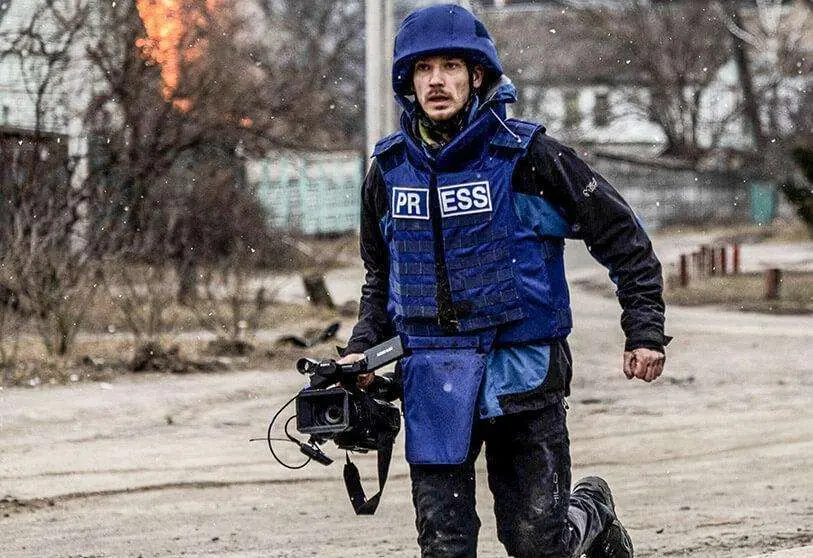There is no democracy without journalists

Journalism is a fundamental value in any modern, democratic society. It is a thermometer of the degree of development of a country, its institutions, its government and its citizens.
We are living in a time of global transition towards spaces of uncertainty in which we are as soon besieged by a global pandemic as by an energy crisis or by proposals for virtual metaverses that will replace the classic models of life on the planet.
This situation forces us, more than ever, to look after the integrity of people, their needs, security and wellbeing, beyond dystopian approaches. It is at this moment when journalism must show its essence and ensure that the truth prevails over spurious interests; that citizens come before companies; that governments do not act with impunity wherever there are conflicts; that the sustainability and prosperity of the planet take centre stage over destruction and selfishness.
The figure of the war reporter has always been mythologised by society. Implicit in this mythification is a part of respect for the work they do, not only because of the risk they run. It is also because of the respect generated by the figure of the person who reports on lost realities and social injustices with no other reward than to provide society with knowledge of these injustices, to represent their victims and to try to bring conflicts to an end. This is one of the reporter's premises: the search for peace. It is true that tragedy, suffering or violence are, according to Xavier Giró "... the raw material par excellence of the information offered by the media". But it is also true that the tendency of war reporters is to move away from this name, which makes them linguistic accomplices of the unreasonableness of war, and to link themselves to the concept of peace journalism, coined by Johan Vincent Galtung.
Although it can be justified on other grounds, this tendency serves to position the figure of the reporter as a professional who reports on a conflict he or she wishes to end, and to some extent moves away from the preconceived idea of the classic war reporter, generally linked to the concept of war and not the pacifist one.
For this reason, it is also possible to justify the need for the figure of the reporter not only because of what his or her work brings to the media. It is also because of the premise of peace that their work entails and the way in which they transmit this premise to society.
Beyond reporters, whose risk is often proportional to the conflict they cover, journalists around the world are killed for investigating cases related to drug trafficking, terrorism, influence peddling and corruption or religious issues. Mexico holds, for the fourth consecutive year, the sad record for the number of journalists killed in the course of their work. So far in 2022, 15 journalists have been killed without the government having yet responded to journalists' requests for the defence of freedom of expression and freedom of the press, as well as for physical and legal security. This figure is almost double the number of journalists killed in the war in Ukraine since the invasion by Russia in February 2022.
In Europe itself, the traditional guarantor of these freedoms, the European Commission presented last September the European Law on Freedom of the Media, with the intention of protecting editorial independence and transparency in media ownership. This law comes after the murders of journalists in recent years in countries such as Malta, Slovakia and Greece, seeking to guarantee the safety of journalists in the face of pressure from mafias, oligarchs and, on occasions, the States themselves.
For all these reasons, and in an effort to put an end to the murders of journalists, 2 November is the World Day to Stop Crimes against Journalists. The year 2022 marks a decade of commemorating the day. The UN is strongly committed to the safety of journalists, guarantors of freedom of information and capable of giving their lives to reflect reality.
In conclusion, UN Secretary-General António Guterres said in defence of journalists and the freedoms that should protect them: "I urge Member States and the international community to stand in solidarity with journalists around the world, today and every day, and to demonstrate the political will to investigate and prosecute crimes committed against journalists and media workers to the fullest extent of the law".
To look after the safety and work of journalists is to look after the society in which you live.
Fernando Ávila, lecturer in Audiovisual Communication at the Universidad Europea/The diplomat

